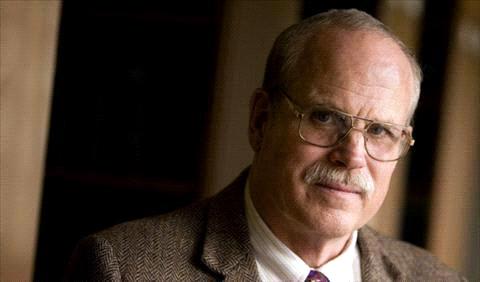AMMONNEWS - The “Clash of Civilizations” theory was proposed by political scientist Samuel P. Huntington, in a 1993 article published in Foreign Affairs, and in a later book titled The Clash of Civilizations (1996).
Huntington’s thesis is that the conflicts of the future will be based, not on conflicts between nation states, but on conflicts between cultures and what he calls civilizations.
The major civilizations identified by Huntington are: Sinic (Chinese), Japanese, Hindu, Islamic, Orthodox (Russian), Western (Europe and North America), Latin American. Religion, Huntington says, “is a central defining characteristic of civilizations.” (The Clash of Civilizations, p. 47).
Huntington in particular predicted that there would be clashes between the West and Islamic civilization. In his Foreign Affairs article, he stated “Islam has bloody borders.”
The advent of the wars in Afghanistan and Iraq has been widely seen as a vindication of Huntington’s theory, especially among Neo-Conservatives.
To his credit, though, Huntington warned (in 1996) that imposing Western values, such as democracy, on other civilizations by force would lead to intercivilizational wars which could in turn lead to the defeat of the West. He cannot therefore be blamed for the invasion of Iraq. Indeed, he warned against just such imperialism.
What can we say about Huntington’s thesis? First of all, it is simplistic: it ignores, for example, the presence of multiple identities in one “civilization.” There are many Muslims in the United States, both immigrants and African Americans. The great majority of them are trying to be both loyal Muslims and loyal Americans. They certainly do not think of themselves as belonging to competing civilizations.
Again, there are multiple nations within what Huntington calls “Islamic civilization,” including, Arabs, Iranians, Indians, Indonesians, Turks, and so on.
Huntington’s thesis may also be a self-fulfilling prophecy. To the extent that people think of themselves as members of competing civilizations, they will act that way, and so bring about the very clash of civilizations that Huntington warns against. This is a particular temptation of leaders in the West, who might imagine themselves in competition with Islamic, or Chinese, or Russian “civilizations” and so bring about destructive cycles of competition and ruinous arms races.
The worst effect of Huntington’s thesis is that it is an artificial category which defines groups, (“civilizations”) not by what they share in common, but by their differences. Thus it leads people into thinking that their civilization is competing against others—much like rival sports teams. In particular, simplistically understood, it leads people both in Islam and in Christianity to think of each other as enemies.
(Huntington himself states: “For people seeking identity…, enemies are essential, and potentially most dangerous enemies occur across the fault lines between the world’s major civilizations.” [The Clash of Civilizations, p. 20]).
A better and alternate way of thinking is provided by the important document A Common Word, (www.acommonword.com), signed by 138 Muslim theologians and clerics. This document focuses on what Muslims and Christians have in common: a common belief in God, the importance of the commands to love God and to love one’s neighbor.
This document has been widely accepted in Islam (and Christianity), and is becoming a consensus (ijma) document, in which case it would be normative in Islam. This raises the possibility that, even after centuries of enmity, Muslims and Christians could begin seeing each other as friends and partners, not enemies.
Indeed, Catholics and Lutherans were enemies for about 400 years, and yet when they began to focus on what they had in common, rather than on attempting to prove the other side wrong, they made great progress in trusting one another, in finding areas of agreement, and in reconciling areas of difference.
Thus, today, Catholics and Lutherans intermarry, work together, and teach together (we have Lutherans and Catholics on our faculty at St. Thomas). The same thing could happen to Muslims and Christians, if we can learn to consider what we have in common, and focus on working together for peace, justice, and a more equitable distribution of wealth.
Let us imagine, then what the world would look like if Muslims and Christians put war and polemics behind them, and, based on their common belief in God and the love of neighbor, they could work together for world prosperity and peace.
The billions of dollars now spent on wars could be spent instead on projects of peace. Now each day I read in the news about the wars in Afghanistan and Iraq. But imagine if I read instead about Muslims and Christian cooperating to dig wells in Nigerian villages, or to replant trees in Ethiopia, or to treat victims of AIDs in Africa, or to build homeless shelters in cities in the U.S. Imagine if the evening news were not filled with accounts of war, but of Muslims and Christians cooperating locally to care for the homeless, feed the poor, educate children, and so on.
Such a change is possible, but only if we reject the “Clash of Civilizations” thesis and instead focus on what Muslims and Christians share in common—the importance of the love of God and neighbor. Love of neighbor in turn leads to cooperative action to help those in need. And such action would be a powerful symbol that Muslims and Christians can indeed work together towards world peace, one of the main goals envisioned in A Common Word.
The Author, Dr. Terence Nichols, is Co-Director of Muslim-Christian Dialogue Center at the University of St. Thomas in Minnesota, USA. He contributed this article to Ammon News.










 comment replay
comment replay 